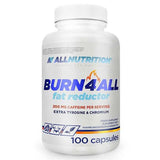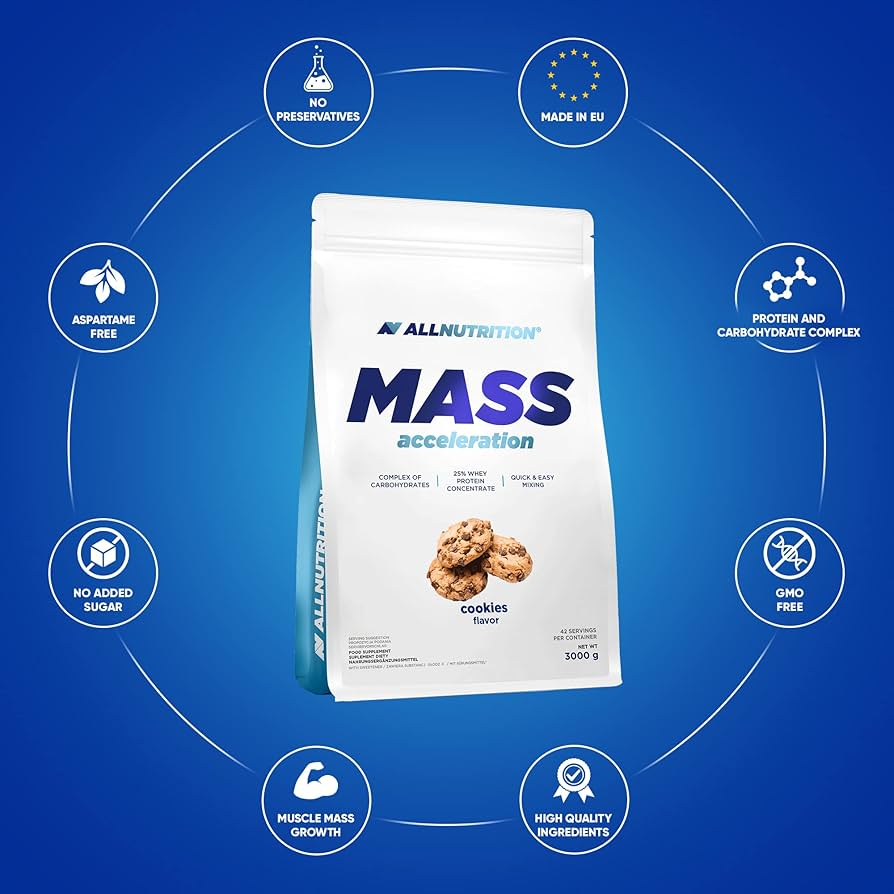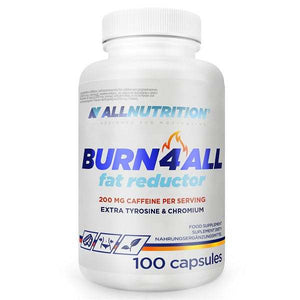What is the Best Injection for Weight Loss?


Related products
Introduction
Obesity, a complex health issue affecting millions globally, poses significant risks to individual health and public healthcare systems. Characterised by an excessive accumulation of body fat, obesity is linked to a myriad of health complications including type 2 diabetes, cardiovascular diseases, and certain types of cancer. In England alone, 63% of adults are overweight or obese, as reported by Public Health England. This prevalence underscores the urgent need for effective weight management strategies.
Among the various interventions for weight loss, injections have emerged as a potential option, particularly for individuals struggling with obesity-related health issues. These injections, designed to aid weight loss, are increasingly considered in treatment plans, especially when traditional methods such as diet and exercise have been insufficient. Dr. Helen Harwood, a leading endocrinologist, states, “Weight loss injections can be a viable option for certain patients, offering an additional tool in the complex battle against obesity.”
Understanding Weight Loss Injections
Weight loss injections typically encompass a range of pharmaceutical substances administered to aid in weight reduction. These injections are not standalone treatments but are used in conjunction with lifestyle changes, such as improved diet and increased physical activity. The concept of weight loss injections has evolved considerably. Initially, such treatments were largely hormone-based, but recent advancements have introduced more targeted approaches, focusing on metabolic and appetite regulation.
The historical development of weight loss injections can be traced back to the early 20th century. Initially, these injections were experimental and not widely endorsed due to limited understanding of their mechanisms and potential side effects. However, with advancements in medical science and a better understanding of obesity's physiological aspects, these injections have been refined and are now more widely accepted in medical practice.
What is the Best Injection for Weight Loss?
The best injection for weight loss typically depends on an individual's specific health situation and should be determined by a healthcare professional. However, there are several prescription injections that have been approved for weight loss, each with their own mechanism of action and suitability for different individuals. Here are some commonly prescribed options:
- GLP-1 Receptor Agonists: These include drugs like liraglutide (brand name Saxenda), semaglutide (Ozempic, Wegovy), and dulaglutide (Trulicity). They mimic the glucagon-like peptide-1 (GLP-1) that the body naturally produces to regulate appetite and food intake. They not only help to reduce appetite but also may improve blood sugar control.
- Bupropion/Naltrexone (Contrave): This is a combination of two medications. Bupropion is an antidepressant and smoking cessation aid, while naltrexone is usually used for addiction treatment. Together, they work to control appetite and food cravings.
- Setmelanotide (Imcivree): This is specifically approved for chronic weight management in individuals with obesity due to certain specific genetic conditions.
- Tesofensine: Still in clinical trials, this medication is being studied for its potential effects on appetite suppression and metabolism.
- Lipotropic Injections: Often used in weight loss clinics, these injections contain a mixture of compounds that may help to decrease fat deposition and speed up the metabolism of fat and cholesterol.
It's important to note that weight loss injections are usually part of a broader weight management plan that includes diet, exercise, and behavioral changes. These medications are typically prescribed to individuals who have not been able to lose weight through diet and exercise alone and who may have health issues related to obesity.
As with any medication, there are potential side effects and risks associated with these injections, and they are not suitable for everyone. It's crucial to consult a healthcare provider to determine the best and safest option for your individual health needs and to discuss the potential benefits and risks.
Types of Weight Loss Injections
Weight loss injections available today can be broadly categorised into several types, each functioning differently to aid in weight reduction. Dr. Michael Brentwood, an obesity specialist, explains, “The diversity of weight loss injections available today offers a range of options, tailored to individual patient needs and medical profiles.”
- Hormone-Based Injections (e.g., HCG): Human Chorionic Gonadotropin (HCG) injections are designed to reduce hunger and affect fat distribution. However, the efficacy and safety of HCG for weight loss are subject to debate, with some studies suggesting minimal benefits.
- Appetite Suppressants (e.g., Saxenda): Liraglutide, marketed as Saxenda, is an appetite suppressant that works by mimicking a hormone that regulates appetite. Clinical trials have shown that Saxenda, when combined with lifestyle changes, can lead to significant weight loss.
- Metabolic Boosters: These injections aim to increase the body’s metabolic rate, thereby enhancing fat burning. However, their efficacy can vary significantly among individuals.
- Other Types: Research is ongoing into other forms of weight loss injections, focusing on different aspects of metabolism and appetite control.
The mechanism of action for each type varies. Hormone-based injections are believed to act directly on the body's metabolic processes, whereas appetite suppressants like Saxenda work on the brain to induce a feeling of fullness. Metabolic boosters, on the other hand, aim to increase calorie burn rate. It is crucial to understand that these injections are not 'one-size-fits-all' solutions and should be considered in the context of individual health needs and under medical supervision.
Efficacy of Weight Loss Injections
The efficacy of weight loss injections has been a subject of extensive clinical research. A study published in the 'Journal of Clinical Endocrinology & Metabolism' reported that participants using liraglutide, an appetite suppressant, lost an average of 8% of their body weight over 56 weeks. In comparison, hormone-based injections like HCG have shown more variable results, with some studies indicating minimal effectiveness in weight loss.
The variation in efficacy rates between different types of injections is significant. Appetite suppressants, such as Saxenda, typically show more consistent results in weight loss compared to hormone-based and metabolic booster injections. This variance can be attributed to the different mechanisms of action and how each individual’s body responds to the treatment.
Dr. Sarah Atkins, a nutrition expert, emphasizes that "Efficacy of weight loss injections can vary widely among individuals, depending on factors such as age, metabolism, and adherence to associated lifestyle changes." Thus, it is important to manage expectations and understand that results can differ from person to person.
Benefits and Risks
The benefits of weight loss injections are multi-faceted. They can provide a significant boost in weight loss efforts, especially for individuals who have not achieved their desired results with diet and exercise alone. In addition to weight reduction, these injections can also lead to improvements in various obesity-related conditions such as diabetes, hypertension, and high cholesterol levels.
However, the use of weight loss injections is not without risks. Side effects can range from mild symptoms like nausea and headaches to more severe complications such as pancreatitis and thyroid tumors, as noted in studies involving liraglutide. It is crucial to undergo a thorough medical evaluation before starting any weight loss injection regimen.
Dr. Laura Green, an obesity specialist, suggests, “Weight loss injections should be considered for individuals who have a BMI of 30 or higher, or 27 and above with weight-related health conditions, and have not had success with traditional weight loss methods.”
Patient Considerations
A holistic approach to weight loss is paramount for long-term success. Weight loss injections should be viewed as part of a broader strategy that includes dietary changes, increased physical activity, and potentially behavioral therapy. Dr. James Peterson, a bariatric physician, notes, “Injections can be a valuable component in a comprehensive weight loss plan, but they are not a magic bullet.”
The psychological impacts of weight loss and the use of injections should not be underestimated. Setting realistic expectations is key. Patients should understand that injections are an aid in weight loss, not a cure for obesity. Regular consultations with healthcare providers are essential to monitor progress and adjust treatment plans as necessary.
In conclusion, while weight loss injections offer a promising tool for managing obesity, their use should be carefully considered within the context of an individual's overall health, lifestyle, and weight loss goals. With proper medical guidance and realistic expectations, they can be an effective component in the journey towards achieving and maintaining a healthy weight.
Cost and Accessibility
The cost of weight loss injections can vary widely depending on the type of injection, geographical location, and the course's duration. In the UK, the National Health Service (NHS) typically does not cover these injections for weight loss, thus individuals must bear the cost privately. For example, a course of liraglutide (Saxenda) can cost upwards of £200 per month. Hormone-based injections like HCG may have different pricing structures, but generally, they are comparably priced.
Insurance coverage for weight loss injections is often limited. Most private health insurance plans consider these injections a part of cosmetic or lifestyle treatments, thus excluding them from coverage. This lack of insurance support contributes to the accessibility issue, making it a less viable option for individuals with limited financial means.
Dr. Elizabeth Ford, a general practitioner with a focus on obesity management, points out, “The cost and lack of insurance coverage for weight loss injections can make them inaccessible for many, raising concerns about the equity of obesity treatments.”
Expert Opinions
Medical professionals and weight loss experts often express cautious optimism regarding weight loss injections. While acknowledging their potential benefits, they stress the importance of comprehensive patient evaluation and monitoring.
Case studies reveal varying degrees of success with these injections. For instance, a patient case documented in the 'British Medical Journal' showed significant weight loss and improved glycemic control in a diabetic patient using liraglutide. However, experts caution against generalising such results, emphasizing the need for personalized treatment plans.
Comparisons with Other Weight Loss Methods
Comparing weight loss injections to traditional methods like diet and exercise, the latter are universally recommended as the first line of treatment for obesity. Dr. Mark Daniels, a nutritionist, asserts, “Diet and exercise remain the cornerstone of weight management, and injections should only be considered when these methods are insufficient.”
When compared to surgical options like bariatric surgery, weight loss injections are less invasive and carry a lower risk profile. However, surgery often results in more significant and rapid weight loss. A study in 'Obesity Surgery' journal reported average excess weight loss of 60-70% post-bariatric surgery, compared to 5-10% for pharmacological interventions like injections.
In summary, while weight loss injections present a promising aid for those struggling with obesity, their cost and accessibility issues pose significant challenges. They are most effective when used as part of a comprehensive weight management plan that includes lifestyle changes. Comparatively, they offer a less invasive but also potentially less dramatic alternative to surgical weight loss methods.
Comparison Between Popular Weight Loss Injections
Wegovy, Mounjaro, and Zepbound are all injectable medications used for weight management, but they differ in their mechanisms of action and specific uses.
Wegovy (Semaglutide): Wegovy is a GLP-1 receptor agonist, which means it mimics a hormone that regulates appetite. It's primarily used for chronic weight management in adults with obesity or overweight who have at least one weight-related condition (like high blood pressure, type 2 diabetes, or high cholesterol). It works by reducing appetite and calorie intake.
Mounjaro (Tirzepatide): Mounjaro is a relatively new medication that combines the actions of both a GLP-1 receptor agonist and a GIP (glucose-dependent insulinotropic polypeptide) receptor agonist. This dual action not only helps in reducing appetite and food intake but also improves blood sugar control more effectively, making it particularly beneficial for individuals with type 2 diabetes. Mounjaro is approved for the treatment of type 2 diabetes, and studies have shown significant weight loss in patients using it.
Zepbound: It operates by suppressing appetite and increasing metabolism, leading to a reduction in calorie intake and a boost in energy expenditure. Zepbound is typically taken orally, often in the form of a pill or capsule. It is recommended to be used in conjunction with a balanced diet and regular exercise for optimal results.
Conclusion
This article has explored the multifaceted nature of weight loss injections, a developing tool in the fight against obesity. The key points discussed include the varying types of weight loss injections available, such as hormone-based injections (e.g., HCG), appetite suppressants (e.g., Saxenda), and metabolic boosters, each with distinct mechanisms of action. The efficacy of these injections has been highlighted, underscoring that results can vary significantly among individuals, with appetite suppressants generally showing more consistent outcomes.
The benefits and risks associated with these injections have been scrutinized. While they offer a potential avenue for substantial weight loss and improvement in obesity-related conditions, they also come with risks and side effects, necessitating careful consideration and medical supervision. The importance of a holistic approach to weight loss was emphasized, considering injections as part of a broader strategy including diet, exercise, and behavioural therapy.
Cost and accessibility emerged as critical factors, with the expense of these treatments potentially limiting their widespread use, especially given the limited insurance coverage for such interventions in the UK. Expert opinions and case studies indicate cautious endorsement of these injections, advocating for a personalised approach to treatment.
Comparing weight loss injections to traditional methods and surgical options, it is clear that while injections offer a less invasive alternative, they should not replace the foundational aspects of weight management like diet and exercise, nor do they promise the more dramatic results of surgical interventions.
In conclusion, weight loss injections represent an evolving area in the treatment of obesity. They hold promise as part of a comprehensive weight management plan but are not a standalone solution. Their use requires careful consideration of individual health profiles, realistic expectations, and a commitment to lifestyle changes. The role of injections in weight loss management continues to evolve, and their place in the broader strategy against obesity must be continually assessed in light of emerging research and clinical experiences.


















 Rated Excellent by 26,523+ Reviews
Rated Excellent by 26,523+ Reviews